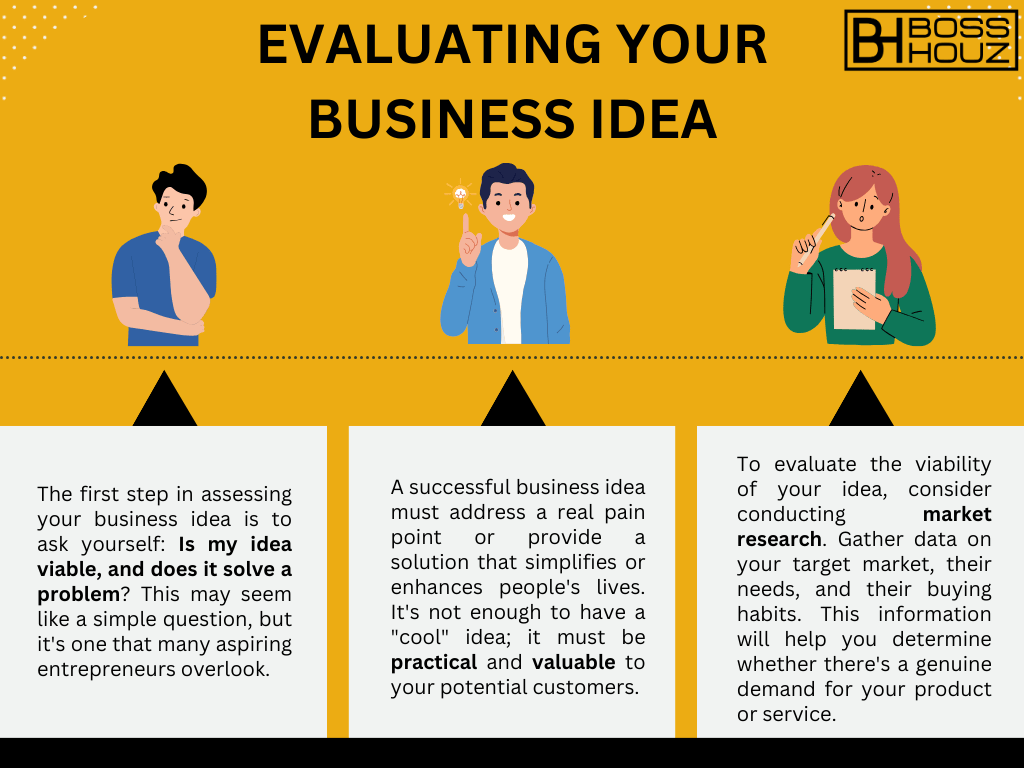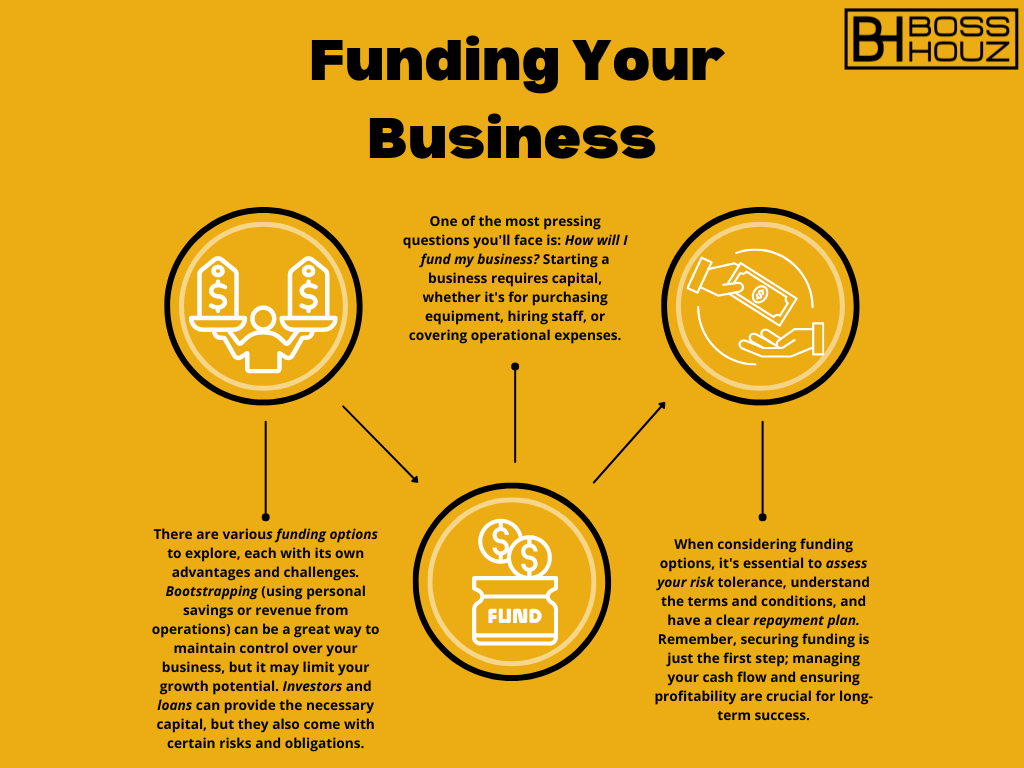Entrepreneurship is crazy man. The allure of starting your own business has never been stronger. With countless success stories and the promise of financial independence, it’s no wonder that aspiring entrepreneurs from all walks of life are eager to embark on their own entrepreneurial journeys. However, amidst the excitement and endless possibilities, a crucial lesson often gets overlooked: preparation is the key to success.
Starting a business is not a decision to be taken lightly. It requires unwavering dedication, strategic planning, and a deep understanding of the market you’re entering. Before diving headfirst into the entrepreneurial waters, it’s imperative to pause and ask yourself a series of probing questions. These questions will not only challenge your assumptions but also serve as a reality check, ensuring that your business idea is built on a solid foundation.
In this comprehensive guide, we’ll explore the top questions every aspiring entrepreneur should ask before starting a business. From conducting market research and competitive analysis to navigating the legal and financial aspects, we’ll cover it all. Buckle up, and get ready to embark on a journey that will shape your entrepreneurial mindset and increase your chances of business success.
Key Takeaways:
- Starting a business requires thorough preparation and strategic planning.
- Conducting market research and understanding your target audience is crucial.
- Evaluating your skills, resources, and funding options is essential.
- Navigating legal and administrative requirements is a must for compliance.
- Developing a solid marketing strategy can make or break your business launch.
Table of Contents
Section 1: Self-Assessment for Aspiring Entrepreneurs
Before you dive into business planning, it’s crucial to take a step back and engage in some self-reflection. Starting a business is a profound decision that will impact every aspect of your life, from your personal relationships to your financial stability. As such, it’s essential to ask yourself some tough questions and assess your readiness for the entrepreneurial journey.
Understanding Your Motivation
The first question you should ask yourself is: Why do I want to start a business? Your motivation will serve as the driving force behind your venture, fueling you through the inevitable challenges and setbacks that come with being an entrepreneur.
Is it the allure of financial freedom that draws you in? Or perhaps you’re passionate about solving a specific problem and believe your innovative idea can make a difference. Maybe you’re tired of the corporate grind and crave the autonomy that comes with being your own boss.
Whatever your motivation may be, it’s crucial to define it clearly and ensure that it aligns with your core values and long-term goals. A strong “why” will keep you grounded and focused, even when the going gets tough.
Pro Tip: Write down your motivation and keep it in a place where you can refer to it frequently. This will serve as a reminder of why you started this journey in the first place.
Skills and Expertise
Once you’ve identified your motivation, it’s time to take an honest look at your skills and expertise. Ask yourself: Do I have the necessary skills to start and run a successful business?
Entrepreneurship requires a diverse skill set, ranging from strategic planning and decision-making to financial management and marketing. It’s essential to assess your strengths and weaknesses in these areas and identify any gaps that need to be filled.
If you’re lacking in certain areas, don’t be discouraged. Many successful entrepreneurs have sought out mentors, enrolled in training programs, or partnered with individuals who complement their skill sets. The key is to be self-aware and proactive in acquiring the knowledge and expertise you need to succeed.
Key Takeaway: Starting a business is not a solo endeavor. Surround yourself with a support network of experienced professionals and trusted advisors who can guide you through the challenges and provide valuable insights.
Section 2: Conceptualizing Your Business Idea
“Ideas are easy. Implementation is hard.” – Guy Kawasaki
With your motivation and skills in check, it’s time to turn your attention to the heart of your venture: your business idea. In this section, we’ll explore the critical questions that will help you evaluate and validate your concept, ensuring that it’s not only viable but also resonates with your target audience.
Evaluating Your Business Idea


The first step in assessing your business idea is to ask yourself: Is my idea viable, and does it solve a problem? This may seem like a simple question, but it’s one that many aspiring entrepreneurs overlook. When I started my agency, I was always asked one question. Is your baby ugly? Basically, is what you’re hypothesizing realistic, and is this something you can take a run with.
A successful business idea must address a real pain point or provide a solution that simplifies or enhances people’s lives. It’s not enough to have a “cool” idea; it must be practical and valuable to your potential customers.
To evaluate the viability of your idea, consider conducting market research. Gather data on your target market, their needs, and their buying habits. This information will help you determine whether there’s a genuine demand for your product or service.
Pro Tip: Don’t be afraid to seek feedback from potential customers or industry experts. Their insights can be invaluable in refining your idea and ensuring that it resonates with your target audience.
Identifying Your Target Audience
Speaking of target audiences, one of the most critical questions you should ask yourself is: Who are my potential customers? Understanding your target market is essential for developing an effective marketing strategy, tailoring your product or service offerings, and ultimately achieving business success.
To identify your target audience, consider factors such as demographics (age, gender, income level, location), psychographics (interests, values, lifestyle), and behavioral patterns. The more specific you can be in defining your target market, the better you’ll be able to meet their needs and differentiate yourself from competitors.
Key Takeaway: Don’t make the mistake of trying to appeal to everyone. Successful businesses thrive by catering to a specific niche and serving their target audience exceptionally well.
Section 3: Market Analysis and Strategy
“The market is a harsh judge, and no one gets a free pass.” – Joel York
With a solid understanding of your business idea and target audience, it’s time to dive deeper into the competitive landscape. In this section, we’ll explore the critical questions that will help you analyze your competition and develop a differentiation strategy that sets your business apart.
Analyzing the Competition
One of the most important questions you should ask is: Who are my competitors, and what can I learn from them? It’s crucial to have a comprehensive understanding of the players in your industry, their strengths, weaknesses, and unique selling propositions.
Conduct thorough competitor research by studying their websites, social media presence, marketing materials, and customer reviews. Look for patterns, identify gaps in the market, and determine how you can position your business to fill those gaps and stand out from the crowd.
Pro Tip: Don’t just focus on direct competitors. Look for indirect competitors and substitutes that may vie for your target audience’s attention and dollars.
Developing a Business Model
Once you’ve analyzed the competition, it’s time to ask yourself: What is my business model, and how will it generate profit? Your business model is the foundation of your venture, outlining how you’ll create value for your customers and generate revenue.
There are various business models to consider, such as product-based, service-based, subscription-based, or a combination of these. Each model has its own strengths, weaknesses, and revenue streams, so it’s essential to choose one that aligns with your business goals and target market.
When developing your business model, consider pricing strategies, cost structures, and revenue projections. Set realistic financial goals and plan for sustainability and growth.
Key Takeaway: A well-thought-out business model is the blueprint for your success. Take the time to craft a model that not only resonates with your target audience but also positions your business for long-term profitability.
Section 4: Financial Planning and Management
“Money is the lifeblood of every business.” – Henry Ford
In the world of entrepreneurship, financial planning and management are paramount. Without a solid grasp of your finances, your business is bound to hit turbulent waters. In this section, we’ll explore the critical questions that will help you navigate the financial aspects of starting and running a successful venture.
Funding Your Business


One of the most pressing questions you’ll face is: How will I fund my business? Starting a business requires capital, whether it’s for purchasing equipment, hiring staff, or covering operational expenses.
There are various funding options to explore, each with its own advantages and challenges. Bootstrapping (using personal savings or revenue from operations) can be a great way to maintain control over your business, but it may limit your growth potential. Investors and loans can provide the necessary capital, but they also come with certain risks and obligations.
When considering funding options, it’s essential to assess your risk tolerance, understand the terms and conditions, and have a clear repayment plan. Remember, securing funding is just the first step; managing your cash flow and ensuring profitability are crucial for long-term success.
Pro Tip: Don’t be afraid to explore alternative funding sources, such as crowdfunding platforms or government grants and loans designed for small businesses.
Budgeting and Financial Projections
Once you’ve secured funding, it’s time to ask yourself: How will I manage my finances and ensure profitability? Creating a detailed budget and financial projections is essential for keeping your business on track and making informed decisions.
Start by identifying your fixed costs (rent, utilities, salaries) and variable costs (inventory, marketing, supplies). Then, forecast your revenue streams based on your pricing strategy and market demand. This will help you determine your break-even point and set realistic goals for profitability.
Don’t forget to factor in unexpected expenses and create contingency plans for potential setbacks or market fluctuations. Financial management is an ongoing process, so be prepared to adjust your budget and projections as your business evolves.
Key Takeaway: Effective financial management is the backbone of a successful business. Don’t underestimate the importance of budgeting, forecasting, and closely monitoring your finances from day one.
Section 5: Legal and Administrative Considerations
“It’s better to be prepared for an opportunity and not have one than to have an opportunity and not be prepared.” – Whitney M. Young Jr.
Starting a business involves more than just a great idea and financial planning. There are legal and administrative hurdles that you’ll need to navigate to ensure compliance and protect your venture. In this section, we’ll explore the critical questions that will help you make informed decisions about your business structure, licenses, and taxes.
Choosing the Right Business Structure
One of the most important questions you should ask is: What type of business structure should I choose? The structure you select will have significant implications for your legal liability, tax obligations, and operational flexibility.
Common business structures include sole proprietorship, partnership, corporation, and limited liability company (LLC). Each option has its own pros and cons, so it’s crucial to research and seek professional advice to determine the best fit for your specific circumstances.
When choosing a business structure, consider factors such as your personal risk tolerance, growth plans, and tax implications. Remember, your business structure can be changed as your venture evolves, but it’s essential to start on the right foot.
Pro Tip: Consult with a legal professional or accountant to ensure you understand the legal and financial implications of each business structure before making a decision.
Navigating Taxes and Licenses
Another critical question to ask is: What legal and regulatory requirements do I need to comply with? Depending on your industry, location, and business structure, you may need to obtain various permits, licenses, and certifications.
Failure to comply with legal requirements can result in hefty fines or even the closure of your business, so it’s essential to do your due diligence. Research the specific regulations and tax obligations that apply to your venture, and seek professional guidance if necessary.
Additionally, familiarize yourself with employment laws, zoning regulations, and environmental regulations that may impact your business operations. Staying compliant from the outset will save you a lot of headaches (and money) down the line.
Key Takeaway: Compliance may seem like a hassle, but it’s a necessary part of running a legitimate and successful business. Embrace it as an opportunity to establish a solid foundation for your venture and avoid costly mistakes.


Section 6: Launching Your Business
“The only way to win is to start.” – Dave Ramsey
After months (or years) of planning, research, and preparation, the moment you’ve been working towards is finally within reach: launching your business. In this section, we’ll explore the critical questions that will help you develop a marketing strategy and ensure a successful launch.
Developing a Marketing Strategy
One of the most important questions to ask is: How will I promote my business and reach my target audience? Without an effective marketing strategy, even the most brilliant business idea can fail to gain traction.
Start by defining your unique value proposition – what sets your product or service apart from the competition? Use this as the foundation for crafting a compelling brand narrative that resonates with your target audience.
Next, explore various marketing channels and tactics, such as social media, content marketing, email campaigns, and influencer partnerships. Experiment with different strategies and monitor your key performance indicators (KPIs) to determine what works best for your business.
Pro Tip: Don’t underestimate the power of storytelling in your marketing efforts. People connect with brands that evoke emotions and share relatable narratives.
Preparing for Launch
After months (or even years) of meticulous planning and preparation, the moment you’ve been waiting for is finally here: launching your business. But before you pop the champagne, ask yourself: Am I truly ready for launch?
Create a comprehensive launch checklist to ensure you’ve covered all your bases. This may include finalizing your website, social media accounts, and marketing materials, as well as ensuring compliance with all legal and regulatory requirements.
Don’t forget to coordinate with your team, partners, and suppliers to ensure a seamless launch day. And remember, the launch is just the beginning; be prepared to adapt and pivot based on customer feedback and market dynamics.
Key Takeaway: A successful launch requires careful coordination and attention to detail. Celebrate this milestone, but remain vigilant and focused on the journey ahead.
Wrapping up the Top Questions to Ask Before Launching Your Startup
As you embark on your entrepreneurial journey, remember that starting a business is a marathon, not a sprint. It requires unwavering dedication, strategic planning, and the ability to adapt to ever-changing market conditions.
Throughout this guide, we’ve explored the top questions aspiring entrepreneurs should ask themselves before launching their ventures. From conducting market research and competitive analysis to navigating the legal and financial aspects, we’ve covered a wide range of critical considerations.
But perhaps the most important lesson is this: entrepreneurship is a mindset. It’s about embracing challenges, learning from failures, and continuously seeking opportunities for growth and innovation.
As a leading expert in the field of entrepreneurship, Boss Houz understands the complexities and rewards of starting a business. We’ve witnessed countless aspiring entrepreneurs turn their dreams into reality, and we’re here to support you on your journey.
If you’re feeling inspired and ready to take the next step, we invite you to download our free resource, available at https://bosshouz.com/free-ebook/. This valuable guide will provide you with additional insights, strategies, and actionable steps to help you navigate the entrepreneurial landscape with confidence.
Remember, the path to success is paved with questions, and by asking the right ones, you’re setting yourself up for a rewarding and fulfilling entrepreneurial journey. So, take a deep breath, embrace the uncertainty, and let your passion for creating something remarkable guide you forward.








